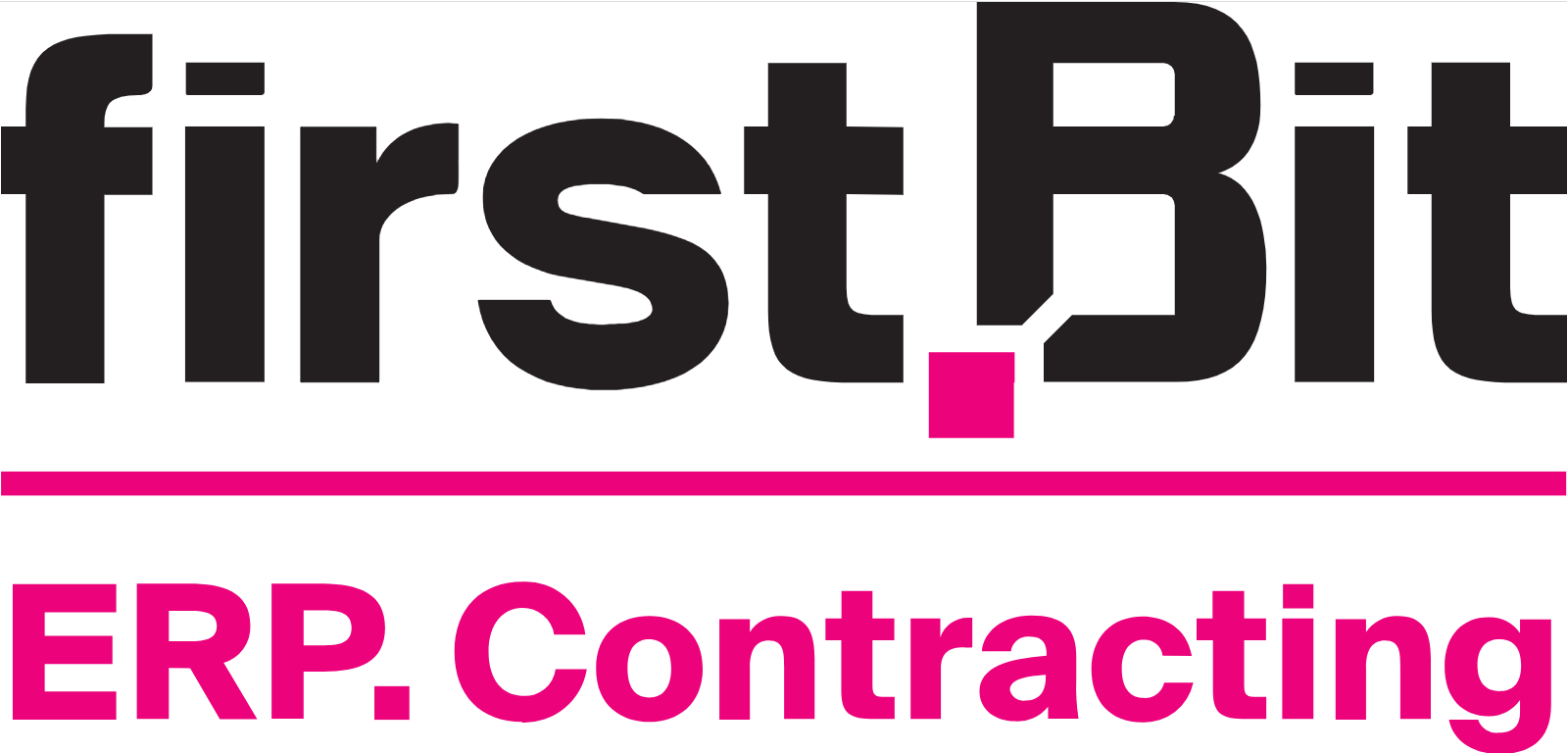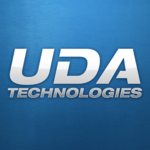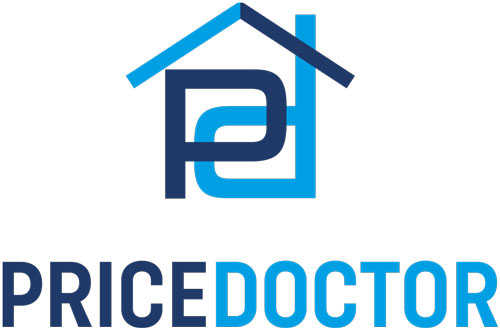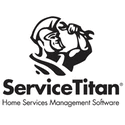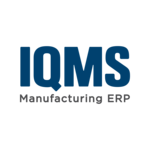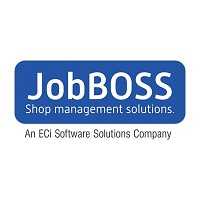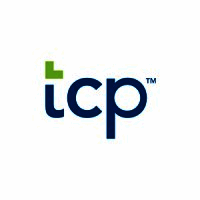Yes, most job costing software is compatible with multiple devices and platforms. This means you may use the software on your desktop, laptop, tablet, or smartphone, and it is compatible with operating systems such as Windows, Mac OS, and Linux. This allows firms to track and control their work expenditures in real time, even while on the go. It also enables seamless collaboration among team members utilizing various devices.
List of 20 Best Job Costing Software
CYMA is a highly sought-after payroll software perfect for businesses, big or small. Its Employee Self-Service feature simplifies payroll management. It even offers support for household workers, including Schedule R 940/941. The user-friendly interf...Read More CYMA
REALTRAC is a ERP solution tailored for manufacturing enterprises like machine shops, job shops, and make-to-order manufacturers. Its intuitive interface and easy implementation make it an essential tool for companies looking to streamline operations...Read More REALTRAC
Buildertrend is a reliable construction management software utilized by builders and contractors globally. Its mobile apps are easy to use and its features can be personalized to meet specific needs. The software is designed for custom builders, remo...Read More Buildertrend
Planyard is a construction solution that streamlines project financial management and boosts productivity. It seamlessly integrates with leading accounting software, providing real-time budgeting and cost projections to help teams make efficient deci...Read More Planyard
FirstBit ERP is a software solution for CONTRACTING & CONSTRUCTION companies in the UAE. Our all-in-one platform is designed to enhance your business operations with real-time reporting, BOQ management, estimation, approval workflows, cost control, a...Read More FirstBit ERP Contracting & Construction
JGID is a software for efficiently managing operations in high-risk industries. Our comprehensive job management system and automation of administrative tasks allow for seamless equipment tracking and resource control. With our softwares seamless int...Read More JGID
UDA ConstructionSuite is a project management software for construction professionals. This comprehensive platform offers tools for scheduling, estimating, and document organization, streamlining processes and ensuring efficient and timely project co...Read More UDA ConstructionSuite
Price Doctor is a pricing and quoting solution. Revolutionize your domestic work process with our advanced calculators. Try it out now for free and enjoy smooth lead management, precise pricing, simplified job management, and effortless invoicing - i...Read More Price Doctor
Nexvia Software is a project management solution designed to meet the unique requirements of construction and trade companies. Its advanced capabilities, including instant data monitoring, intelligent bid management, and centralized control, empower...Read More Nexvia
BigChange is an innovative software platform that transforms job management. With cutting-edge capabilities, such as live tracking, optimized planning, and in-depth analysis, it empowers companies to boost efficiency and simplify processes. Its smoot...Read More BigChange
Total ETO is the leading ERP solution designed specifically for Engineer To Order manufacturers. With more than 20 years of experience in the industry, it streamlines business processes and drives profitability by seamlessly integrating with existing...Read More Total ETO
ServiceTitan is a highly regarded software platform that is widely adopted by leading home service companies. It offers an efficient solution for managing business processes, increasing sales, and enhancing the overall customer experience. Backed by...Read More ServiceTitan
WorkMax TIME is a time tracking solution for businesses. It enables efficient monitoring of employee working hours, assets, and project timelines. With precise time tracking in place, it simplifies operations and boosts productivity. Eliminate manual...Read More WorkMax TIME
Experience the ultimate job costing solution for small businesses with IQMS JobShop. Streamline your operations and achieve success with powerful tools that allow you to create project routings, generate work orders, track expenses, and process payme...Read More IQMS Job Shop
JobBOSS is a trusted ERP solution for shop management, widely utilized across the US. It is available both as on-premise and cloud software, offering tailored modules for CRM, HRM, and workflow management. Its advanced capabilities and adaptability m...Read More JobBOSS
Synerion is a leading workforce management software that offers cutting-edge solutions for time tracking, scheduling, and employee management. With 40 years of experience and a global presence, Synerion enables businesses to optimize their workforce...Read More Synerion
TimeClock Plus is solution for efficient employee attendance management, using cutting-edge biometric technology. With a wide range of features, it accurately tracks work hours and streamlines time management. This reliable software simplifies record...Read More TimeClock Plus
Powered Now is a and efficient field service management software specifically designed for small businesses. Its advanced features, including scheduling management, customizable invoices, and accurate estimates, make it easy to streamline team operat...Read More Powered Now
Candy is a construction estimating software designed for large corporations, small and medium businesses, and agencies. This comprehensive online business intelligence platform offers a variety of tools such as customizable templates, estimating, and...Read More Candy
Tradify is a construction management software designed to streamline your business. Say goodbye to the hassle of managing jobs, workforce, and schedules. With Tradify, you have access to team availability, efficient task dispatching, and easy resched...Read More Tradify
Learn More About Job Costing Software
- What Is Job Costing Software?
- What Are The Recent Trends In Job Costing Software?
- Benefits Of Using Job Costing Software
- Important Factors To Consider While Purchasing Job Costing Software?
- What Are The Key Features To Look For In Job Costing Software?
- Why Do Businesses Need Job Costing Software?
- How Much Time Is Required To Implement Job Costing Software?
- What Is The Level Of Customization Available In Job Costing Software?
- Which Industries Can Benefit The Most From Job Costing Software?
- Conclusion
What Is Job Costing Software?
Job Costing Software is a vital tool for firms of all kinds that take on projects or jobs. It enables businesses to accurately track and analyze the costs of individual jobs, providing significant insights into the project's profitability. This software allows organizations to assess the direct and indirect costs of a certain job, such as supplies, labor, and overhead charges.
It is also useful for producing comprehensive projections, managing budgets, and tracking progress in real time. One of the primary advantages of Job Costing Software is its ability to give firms with a full breakdown of their project costs. This enables firms to make better decisions and manage their budgets by identifying where spending are exceeding the budget and making necessary adjustments.
Furthermore, with Job Costing Software, businesses can track and analyze the expenses of similar jobs, allowing them to uncover possible cost-cutting opportunities. This functionality is especially valuable for firms that handle recurrent projects or jobs with identical specifications. In addition to cost tracking, Job Costing Software includes functions like timesheet administration, progress tracking, and reporting, making it an effective project management tool.
This enables managers to have a comprehensive knowledge of how each job is progressing, identify bottlenecks, and take remedial action to ensure timely project completion. Another critical feature of Job Costing Software is its ability to integrate with accounting and ERP systems. This enables the seamless flow of data between systems, minimizing the need for human data entry and lowering the possibility of errors.
What Are The Recent Trends In Job Costing Software?
In recent years, job costing software has become an indispensable tool for many firms, regardless of industry or size. This program enables businesses to effectively track and control the costs connected with each particular task or project, delivering important insights and contributing to increased profitability. In this rapidly changing technological landscape, job costing software has undergone significant advancements and changes.
Let's look at some of the most current trends in job costing software to assist you make an informed decision when selecting the right software for your company.
1. Cloud-Based Solutions: Cloud-based job pricing software has gained popularity in recent years. This is because it is accessible, scalable, and cost-effective. Cloud-based software allows organizations to access their data from anywhere with an internet connection, making it perfect for remote teams and freelancers. This also eliminates the need for expensive on-site servers and upkeep, making it a more cost-effective solution for enterprises of all sizes.
2. Integration With Other Business Systems: Another trend in job costing software is the integration of other business systems, such as accounting and project management software. This results in a more streamlined and efficient workflow since data from these systems can be readily synchronized and shared, removing the need for human data entry and lowering the chance of errors.
3. Mobile Capability: In today's fast-paced corporate world, having access to real-time data is critical. This is why many job costing software now include mobile apps that allow users to view their data while on the road. This is especially useful for field workers since it allows them to track time and expenses as they occur, assuring accuracy and efficiency in task costing.
4. Advanced Reporting And Analysis: With the rising amount of data generated by firms, job costing software has grown to include complex reporting and analytics capabilities. These technologies provide in-depth study of job expenses, finding trends and delivering actionable insights for enhanced decision-making. This assists firms in identifying areas for improvement, cost-cutting opportunities, and improved overall project management.
5. Artificial intelligence: Another rising trend in job costing software is the incorporation of artificial intelligence. AI-enabled software can automate repetitive operations, improving job costing efficiency and accuracy. It can also perform predictive analysis, allowing firms to foresee expenditures and enhance financial planning.
Benefits Of Using Job Costing Software
Job costing software is an essential tool for organizations of all sizes since it allows you to effectively track and manage job-related costs, assuring profitability and efficiency. In today's competitive market, organizations must have a strong job costing system in place to stay ahead of the competition.
We will look at the different advantages of utilizing job costing software, so you can make an informed decision when choosing the best software for your organization.
1. Accurate Cost Tracking: One of the primary benefits of adopting job costing software is that it allows firms to accurately track and allocate expenditures. Businesses that use a dedicated system can record both direct and indirect costs related with each project, such as labor, supplies, and overheads. This level of precision assures that the project's ultimate cost reflects actual spending, eliminating any errors or miscalculations.
2. Real-Time Cost Monitoring: Job costing software enables firms to track job-related expenses in real time. This tool increases visibility and control over project spending, allowing firms to make more timely and informed decisions. Businesses that use up-to-date cost information can quickly identify and address any cost overruns or deviations from the budget, assuring project profitability.
3. Improved Project Management: Job costing software has sophisticated project management capabilities, allowing firms to schedule activities, define milestones, and allocate resources more efficiently. Businesses that use a centralized platform to store all job-related data may easily streamline operations, connect with team members, and track progress. This ultimately leads to better project results and more client satisfaction.
4. Improved Budgeting And Estimation: Job costing software allows firms to generate reliable project estimates and budgets using historical and real-time data. This is useful not only for project bidding, but also for budgeting and resource planning. Businesses who have a solid track record of executing projects on time and within budget can establish a great reputation and earn additional jobs in the future.
5. Comprehensive Reporting: Job costing software enables firms to generate detailed reports that provide information about project expenses and profitability. These reports can be tailored to the exact requirements of the business, allowing for a more in-depth study of projects. Businesses with access to such thorough reports can make strategic decisions to improve their processes and profits.
Important Factors To Consider While Purchasing Job Costing Software?
When it comes to choosing job costing software, there are various aspects to consider before making a purchase. This software is intended to help you effectively track and manage the costs connected with individual contracts or projects, making it a valuable tool for organizations of all sizes.
To choose the correct job costing software for your individual needs, keep the following crucial considerations in mind:
1. Features And Functionality: The first and most significant considerations are the software's features and functionality. Choose a platform that includes complex project budgeting, cost and revenue tracking, resource management, and detailed reporting. It should also be able to interface with other critical systems and technologies in your firm.
2. Customization And Scalability: Each business is unique, as are its task costing requirements. Make sure the software you purchase enables for modification based on your company's specific needs. Consider its scalability and whether it can support your future growth and changing requirements.
3. User-Friendly Design: Because job costing software is intended to simplify your cost monitoring and reporting processes, it's critical to select a platform with a user-friendly design. This will save you and your team time and effort while reducing the learning curve.
4. Cost And Budget: The cost of the software is a crucial consideration, particularly for small enterprises with restricted resources. Look for a platform with competitive price and a flexible payment plan. Also, consider how the cost of the program will affect your overall project budget.
5. Technical Support And Training: The best software can only be effective if you and your team understand how to utilize it correctly. Look for a company that provides thorough technical support and training to help you get the most of your software investment.
6. Integration And Compatibility: Depending on your existing systems and tools, you must ensure that the job costing software you select is compatible and can interface easily with them. This will help to streamline your processes and prevent any compatibility difficulties.
What Are The Key Features To Look For In Job Costing Software?
When contemplating purchasing job costing software, there are a few crucial things to check for to guarantee it fulfills your company's requirements. These capabilities not only improve task costing accuracy and efficiency, but also contribute to overall project management and decision making.
Here are the key features to consider:
1. Time And Expense Tracking: A decent job costing software should allow you to track staff time and expenses for individual jobs. This feature provides for proper labor cost allocation, ensuring that each job's cost is correctly reflected.
2. Budget Management: Look for software that can track expected versus actual job expenses. This function aids in tracking project profitability and detecting inconsistencies early on.
3. Project Management: A reliable job costing software should have project management features including task assignment, scheduling, and progress tracking. This enables better project planning and execution, as well as the timely completion of jobs.
4. Integration With Accounting Program: Integrating with your current accounting program simplifies the process of transmitting task cost data for proper reporting. Look for software that integrates effortlessly with popular accounting tools such as QuickBooks or Xero.
5. Cost Estimating: Some job costing software includes cost estimating features for bidding on new projects. This functionality may be very valuable for service-based organizations.
6. Customizable Reporting: The program should be able to provide customized reports that include information on job costs, profitability, and resource use. This feature enables improved decision making and identifies opportunities for improvement.
7. User-Friendly Interface: The software's interface should be simple to use and understand. This ensures that you and your workers can quickly learn how to use the program and maximize its capabilities.
8. Mobile Accessibility: If you have a mobile workforce, you should look at software that provides mobile accessibility. Employees may now log their time and expenses on-the-go, delivering accurate and real-time data for work costing.
9. Customer Support: Ensure that the software vendor provides enough customer support, including training and onboarding, as well as continuous technical assistance. This is critical in case you face any problems while using the software. By taking these main aspects into account, you can choose job costing software that meets your company's demands and streamlines the project costing process. Remember to research prices and read customer reviews before making a decision.
Why Do Businesses Need Job Costing Software?
Businesses require job costing software to effectively track and analyze the costs associated with individual projects or jobs. This enables companies to manage their expenses and verify that they are remaining within budget, as well as uncover cost-cutting opportunities and boost profitability. Businesses that have a full analysis of labor, materials, and overhead costs for each job can make data-driven pricing decisions for their products and services.
This allows them to remain competitive in their business while maintaining a solid profit margin. Another significant advantage of task costing software is its ability to deliver real-time updates on project progress and performance. This assists organizations in identifying blockages or delays early on, allowing them to take corrective action and avoid cost overruns.
Furthermore, job costing software may produce precise and extensive data, making it easier for firms to comply with tax laws and meet financial reporting obligations. Furthermore, the software's automation and digitization of job pricing processes can help firms save time and reduce the risk of human error.This increases efficiency and production, freeing up important resources that may be applied to other tasks.
Overall, job costing software is critical for firms seeking to optimize their cost tracking and analysis processes, improve project management, and make sound financial decisions. It is a valuable tool that may help organizations of all sizes and industries remain competitive, lucrative, and successful.
How Much Time Is Required To Implement Job Costing Software?
The implementation time for job costing software varies based on the software and your organization's size. On average, it can take several weeks to months to properly develop and integrate job costing software into your company processes. The implementation process normally consists of numerous steps, such as data migration, software configuration, personnel training, and system integration.
The complexity of your business processes, as well as the level of customization required, can all have an impact on implementation time. It is critical to allocate adequate time and resources for a successful implementation process. Rushing through deployment might result in errors and erroneous data, compromising the software's accuracy and usefulness.
To ensure a successful installation, thoroughly investigate and select job costing software that is compatible with your company's demands and operations. Before committing to the product, consider requesting a demo or trial period to have a better knowledge of its features. Furthermore, early involvement and buy-in from key stakeholders can help to shorten the implementation process and reduce potential opposition or delays.
What Is The Level Of Customization Available In Job Costing Software?
When it comes to selecting the best job costing software for your company, one essential consideration is the level of customisation offered. This refers to the capacity to customize the software to meet your individual business requirements and operations. The level of customisation you select will vary substantially depending on the software. Some job costing software provides extensive customization, allowing you to develop and personalize your own fields, reports, and even dashboards.
This might be useful for businesses that have unique or complex project costing requirements. These sorts of software typically include a variety of options and settings that can be customized to meet your individual requirements. On the other side, some job costing software has a lower amount of customisation. This implies you may have less control over the software's features and functionalities, as they are tailored to a specific sector or business type.
While this may be appropriate for certain firms, it may not be the ideal choice for others that require more specialized solutions. When selecting a job costing software, it is critical to thoroughly analyze your company's demands and processes in terms of extent of customisation. Consider demoing the product or reading reviews to learn more about its skills in this area. Keep in mind that a higher level of personalization may result in a larger cost, so consider the benefits against your budget.
Which Industries Can Benefit The Most From Job Costing Software?
Job costing software is a sophisticated tool that enables firms to accurately track and analyze the costs of individual projects or jobs. This type of software is required for any corporation seeking to better its financial management and make more informed business decisions. However, which industries will profit the most from job costing software?
Let's have a closer look.
1. Construction: Construction organizations manage complex projects that necessitate precise cost tracking. They can use job costing software to keep track of the costs of equipment, materials, labor, and other project-specific charges. With this software, companies can simply compare real and expected expenditures, find differences, and make adjustments to stay inside budget.
2. Manufacturing: Manufacturing organizations can benefit greatly from job costing software. This tool allows them to correctly calculate the cost of making each product and make better price selections. They can also find places where they can save money and increase efficiency.
3. Contracting: Job costing software is a must-have for contracting organizations. It enables them to keep track of the expenditures of each project, including labor, supplies, subcontractor fees, and other expenses. This data will allow them to bid more accurately on future projects and assure profitability.
4. Consulting: Consulting businesses frequently cost clients based on the time spent on a project. Job costing software can help them track billable hours, project expenses, and overhead costs, making it easier to issue correct invoices and maintain profitability.
5. Architecture & Engineering: Project costs in architecture and engineering can quickly pile up. These organizations may use job costing software to track all project expenses, from design to construction, and monitor their budget in real time. This enables businesses to make the necessary modifications to keep costs in check.
6. Advertising & Marketing: Job costing software can also help organizations in the advertising and marketing sectors. This application allows them to keep track of the expenditures associated with each campaign or project, such as labor, supplies, and advertising. This information can help them calculate the ROI of each campaign and make informed decisions about future projects.
Conclusion
To summarize, job costing software is a vital tool for firms of all kinds that want to correctly track and manage their project costs. This software can considerably benefit firms in a variety of industries by streamlining data entry, increasing efficiency, and providing real-time insights. When picking job costing software, it is critical to thoroughly consider your company's objectives and priorities.To make an informed decision, consider each software's primary features and functionality, ease of use, compatibility with other systems, and pricing.
Additionally, choose a known and trusted service to assure proper support and upgrades. Job costing software can provide a substantial competitive edge for enterprises ranging from construction and manufacturing to consulting and service-based industries by assisting them in identifying areas for improvement, controlling costs, and increasing profitability. Whether you run a small firm or a huge organization, investing in high-quality job costing software can lead to long-term success and expansion. So, take the time to investigate and compare choices to choose the greatest fit for your company.
Job Costing Software FAQ's
Can Job Costing Software Be Accessed Across Multiple Devices And Platforms?
Is Job Costing Software Future-Proof And Adaptable To Emerging Technologies Like AI, Blockchain Or IoT?
Yes, job costing software is future-proof and adaptable to upcoming technologies such as artificial intelligence, blockchain, and the Internet of Things. As technology advances, job costing software suppliers must constantly innovate and update their systems to stay ahead of the curve.
This assures that the software is still efficient, accurate, and relevant in today's fast-paced business environment. Job costing software, with capabilities like automatic data collecting and real-time analytics, is well-equipped to meet the needs of new and developing technologies, making it a significant asset for firms trying to remain competitive.
Is There A Free Trial Offered To Assess Job Costing Software Before Committing?
Yes, many job costing software vendors provide a free trial for prospective customers to evaluate the product before making a decision. This allows customers to study the software's features and functionality and assess whether it satisfies their specific job costing requirements. Some companies offer a restricted trial period, but others provide a fully functional trial with all features. It is recommended that you use the free trial to determine whether the software is a good fit for your business.
Does Job Costing Software Offer Data Security Features And Meet Regulatory Compliance Standards?
Yes, task costing software includes strong data security features like as encryption, user authentication, and scheduled data backups. It also helps firms comply with regulatory standards like GDPR and HIPAA by providing safe data management and storage. This protects sensitive project and financial information from external attackers while adhering to industry regulatory rules.
Can Job Costing Software Integrate Seamlessly With Existing Tools And Platforms?
Yes, most task costing software integrates with widely used products and platforms, including accounting software, project management tools, and time tracking systems. This enables the seamless flow of data and eliminates the need for human input, resulting in enhanced efficiency and accuracy. Before making a purchasing decision, ask the software vendor about their list of integrations and compatibility with your existing products.





